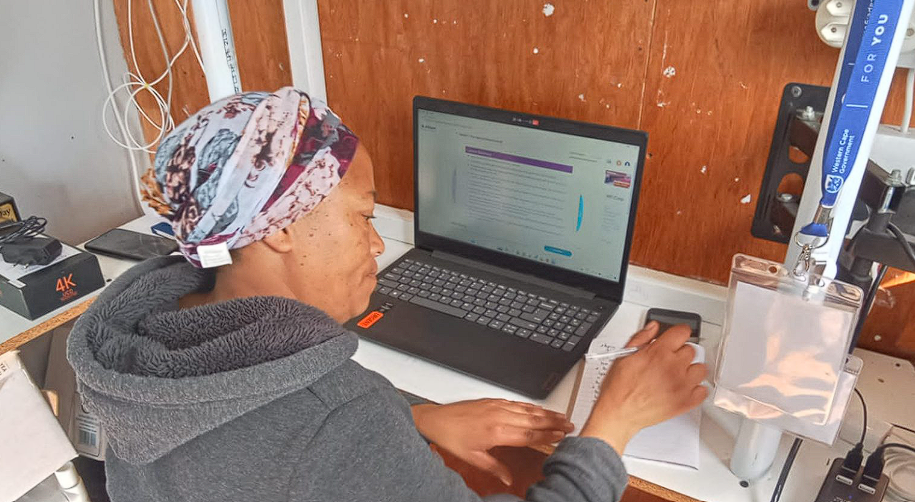Articles
Wakeup Call For Quiet Quitters As Career Cushioning Takes Place
-
2 years ago
2023 is rapidly shaping up to become a year of challenges locally and globally, with some international trends replicating themselves in South Africa, mixed in with unique challenges of our own. Whereas last year saw a great deal of so-called ‘quiet quitting’ as businesses returned to the office (much of it virtually), the approach of ‘doing the bare minimum’ is going to be a losing strategy in the face of the combination of complexities businesses will have to address in coming months, a leadership expert says.
“The signs are clear that employees now need to take action to ensure that they remain visible and valuable in their companies,” says Advaita Naidoo, Africa MD at Jack Hammer Global, Africa’s largest executive search firm.
She says South African companies will, like their global counterparts, have to contend with the challenges posed by the global economic outlook, as well as the opportunities brought by the rapid rise in new technologies, in particular the rise of AI and the potential of chatbots such as ChatGPT to take over functions previously reserved for humans. In South Africa, companies also have to consider the challenges of ongoing loadshedding for at least the next two years, which will without a doubt impact on companies’ bottom lines.
“All of these and other factors combined can feel quite ominous for people concerned about job security, which is why now is the time to look towards career cushioning,” says Naidoo.
Career cushioning essentially means putting in place measures to ensure you are as well positioned as possible to weather incoming uncertainties so that you will remain relevant within your company, and alternatively, to have a safety net or a Plan B in the wings.
“The message for this year is that you must bring your all to your work, because cruise control is no longer going to cut it. You are competing against others in the workforce, you are competing against local and global economic realities, you have to contend with infrastructure challenges courtesy of Eskom, and you now also have to consider whether your livelihood is at risk from AI.
“So what does this, given all these factors, combined with the reality that companies will continue to rely on exceptional human talent and leadership, mean for us now? It means that you have to step up and stand out, bringing your unique human contribution to the fore,” Naidoo says.
Take stock and get real
Take time to understand your contribution – what you are really good at and how you add value. Speak to your manager to determine where else you can be of service to the organisation. Some of your old skills may no longer be relevant, so instead of waiting to be told what to do, expand your area of influence and contribution as widely as possible from your existing position. This will have the dual benefits of making your contribution more valuable, as well as making yourself more visible.Leadership
Managers and leaders may be feeling particularly vulnerable right now, but leadership (of the exceptional kind) will become more important now than ever before. Research has shown that there is about a 70% variance in team engagement depending on the quality of a team’s leader. Companies now will be requiring even greater team engagement, productivity and innovation to keep the wolves from the door, so great leadership which can inspire, motivate, and engage – which is an exclusively human function – will remain in high demand.Artificial intelligence
First it happened slowly, then suddenly. Talk of how the ‘robots will take our jobs’ have been in the works for decades, but the time has arrived where many companies will now start considering how they can implement AI in their daily operations. This requires professionals to take a hard look at whether their function might be in jeopardy and if so, how. The key here is to match existing skills and proficiencies with those human-only ones which AI won’t yet be able to replicate.Networking
The time to stay at home and keep the Zoom camera off has passed. In-office time, spent collaborating with colleagues where possible, will help in keeping you and your contribution front of mind. Get back in touch with professional organisations and attend functions and events so that you can connect with industry peers, keep abreast of what’s coming down the pike, and stay on top of what opportunities may arise in future.Learn
If it becomes clear that your industry might be taking a hit in the near future, start exploring new areas of interest, particularly where your transferable skills might apply. There is a myriad of free and excellent courses available online so that you can investigate your interests before deciding on future moves. Speak to leadership professionals about strategies for the future, and find a mentor to guide you on your way. “It is now incumbent on all of us to figure out how to become outstanding and unmissable at what we do, and consider how we are positioning ourselves career-wise,” says Naidoo. “At this moment, there is no safety in feeling comfortable with just letting the wheels turn over as before by doing just the bare minimum to survive in your job. Becoming proactive and getting yourself back on the front foot now is key.”Related Articles Posts
Categories
Popular Post
-
 SA’s IT spend to outpace GDP growth 1 year ago
SA’s IT spend to outpace GDP growth 1 year ago -
 Vodacom, Netstar launch free in-taxi Wi-... 1 year ago
Vodacom, Netstar launch free in-taxi Wi-... 1 year ago -
 South Africa under pressure to fill cybe... 1 year ago
South Africa under pressure to fill cybe... 1 year ago -
 Organisations with a strong employee val... 1 year ago
Organisations with a strong employee val... 1 year ago -
 Joint policy-in-action event highlights... 1 year ago
Joint policy-in-action event highlights... 1 year ago -
 Boost your digital transformation journe... 1 year ago
Boost your digital transformation journe... 1 year ago







